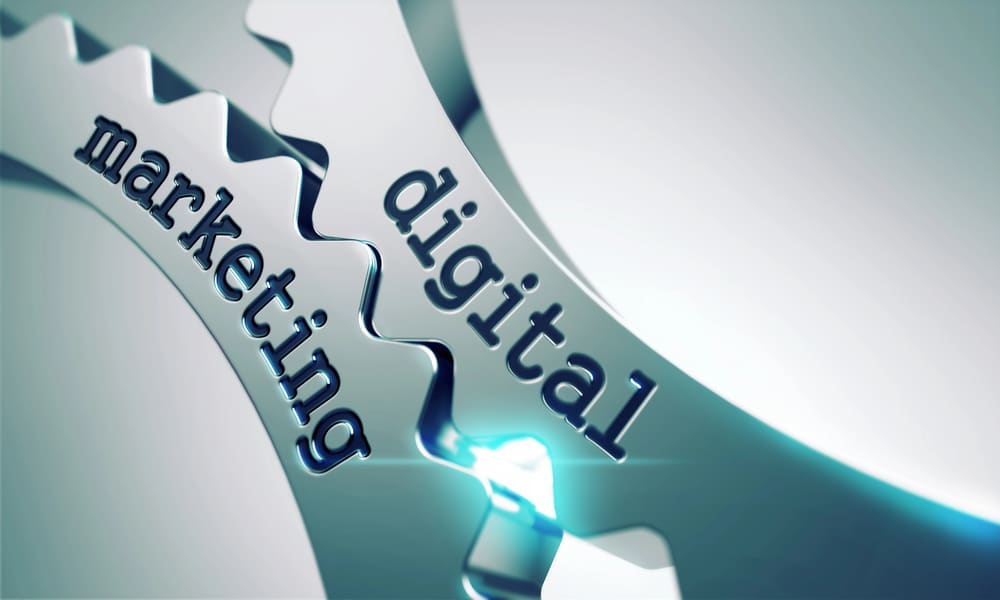Introduction
In today’s fast-paced digital world, small businesses face the challenge of standing out in a crowded marketplace. With over 70% of consumers using mobile devices to search for local businesses, having a strong online presence is no longer optional—it’s essential. Digital marketing offers small businesses the tools and strategies needed to reach a broader audience, engage with customers, and drive sales.
Digital marketing encompasses a wide range of tactics, from search engine optimization (SEO) and social media marketing to content creation and online advertising. These strategies not only help businesses connect with their target audience but also provide measurable results that can be tracked and optimized over time.
For small businesses, digital marketing is a cost-effective way to compete with larger companies. By leveraging digital channels, small businesses can target specific demographics, engage with customers in real-time, and build brand loyalty. As the digital landscape continues to evolve, embracing digital marketing is crucial for small businesses looking to thrive in the modern economy.
Benefits of Digital Marketing for Small Businesses
Digital marketing offers a multitude of benefits that can significantly enhance the growth and success of small businesses. Here are some key advantages:
Cost-Effectiveness
One of the most compelling benefits of digital marketing is its cost-effectiveness. Unlike traditional marketing methods, which often require substantial budgets, digital marketing allows small businesses to reach a wide audience without breaking the bank. Tools like social media platforms and email marketing provide affordable ways to engage with customers and promote products or services.
Targeted Audience Reach
Digital marketing enables small businesses to target specific demographics with precision. Through techniques like search engine optimization (SEO) and pay-per-click (PPC) advertising, businesses can ensure their marketing efforts reach the right audience at the right time. This targeted approach not only increases the chances of conversion but also maximizes the return on investment.
Measurable Results
One of the standout features of digital marketing is the ability to track and measure results in real-time. Analytics tools provide insights into customer behavior, campaign performance, and overall effectiveness. This data-driven approach allows businesses to make informed decisions, optimize their strategies, and achieve better outcomes.
Enhanced Customer Engagement
Digital marketing facilitates direct interaction with customers through social media, email, and other online channels. This engagement helps build strong relationships, foster brand loyalty, and encourage repeat business. By responding to customer inquiries and feedback promptly, businesses can enhance their reputation and customer satisfaction.
Flexibility and Adaptability
The digital landscape is constantly evolving, and digital marketing offers the flexibility to adapt to these changes. Whether it’s leveraging new social media trends or adjusting SEO strategies, small businesses can quickly pivot their marketing efforts to stay relevant and competitive.
Challenges and Solutions
While digital marketing offers numerous benefits for small businesses, it also presents several challenges that can hinder success if not addressed effectively. Understanding these challenges and implementing strategic solutions can help small businesses maximize their digital marketing efforts.
Challenge 1: Limited Budget
One of the most common challenges small businesses face is a limited marketing budget. Unlike larger corporations, small businesses often have to make every dollar count. This constraint can make it difficult to compete in the digital space, where advertising costs can quickly add up.
Solution: Focus on Cost-Effective Strategies
To overcome budget limitations, small businesses should prioritize cost-effective digital marketing strategies. Utilizing social media platforms, which offer free and paid options, can be an excellent way to engage with customers without significant expenditure. Additionally, investing in search engine optimization (SEO) can improve organic search rankings and drive traffic without ongoing costs.
Challenge 2: Lack of Expertise
Many small business owners lack the expertise needed to execute effective digital marketing campaigns. This knowledge gap can lead to inefficient use of resources and missed opportunities.
Solution: Leverage Digital Marketing Tools and Training
Small businesses can bridge the expertise gap by leveraging digital marketing tools that simplify campaign management and analytics. Platforms like Google Analytics and social media management tools provide valuable insights and automation features. Additionally, investing in training or partnering with digital marketing agencies can provide the necessary expertise to execute successful campaigns.
Challenge 3: Keeping Up with Trends
The digital marketing landscape is constantly evolving, with new trends and technologies emerging regularly. Staying updated can be challenging for small businesses with limited resources.
Solution: Stay Informed and Adaptable
To keep up with digital marketing trends, small businesses should allocate time for continuous learning and adaptation. Subscribing to industry newsletters, attending webinars, and participating in online communities can provide valuable insights into emerging trends. Being adaptable and willing to experiment with new strategies can also help businesses stay ahead of the competition.
Challenge 4: Measuring ROI
Measuring the return on investment (ROI) of digital marketing efforts can be challenging, especially when multiple channels are involved.
Solution: Implement Robust Analytics
Implementing robust analytics tools is crucial for tracking the performance of digital marketing campaigns. Tools like Google Analytics and Facebook Insights offer detailed metrics that can help businesses understand what works and what doesn’t. By analyzing this data, small businesses can make informed decisions and optimize their strategies for better results.
By addressing these challenges with strategic solutions, small businesses can harness the full potential of digital marketing to drive growth and success.
Future of Digital Marketing for Small Businesses
As the digital landscape continues to evolve, small businesses must stay ahead of emerging trends to remain competitive. The future of digital marketing promises exciting opportunities and challenges that will shape how small businesses engage with their audiences.
Embracing Artificial Intelligence and Automation
Artificial intelligence (AI) and automation are set to revolutionize digital marketing. AI-powered tools can analyze vast amounts of data to provide insights into customer behavior, enabling businesses to personalize their marketing efforts. Automation can streamline repetitive tasks, such as email marketing and social media posting, freeing up time for strategic planning. Small businesses that embrace these technologies can enhance efficiency and deliver more targeted, personalized experiences to their customers.
The Rise of Voice Search
With the increasing popularity of voice-activated devices like Amazon Alexa and Google Assistant, voice search is becoming a significant trend in digital marketing. Small businesses need to optimize their content for voice search by focusing on natural language and conversational keywords. This shift will require businesses to rethink their SEO strategies to ensure they remain visible in voice search results.
Video Content Dominance
Video content continues to dominate digital marketing, with platforms like YouTube, TikTok, and Instagram Reels gaining immense popularity. Small businesses should leverage video to engage their audience, tell their brand story, and showcase their products or services. Live streaming and interactive video content are also gaining traction, offering businesses new ways to connect with their audience in real-time.
Increased Focus on Data Privacy
As consumers become more aware of data privacy issues, businesses must prioritize transparency and compliance with data protection regulations. Building trust with customers by being transparent about data collection and usage practices will be crucial. Small businesses should implement robust data protection measures and communicate their privacy policies clearly to maintain customer trust.
Integration of Augmented Reality (AR)
Augmented reality is emerging as a powerful tool for enhancing customer experiences. Small businesses can use AR to create immersive experiences, such as virtual try-ons for products or interactive store tours. This technology can help businesses stand out and provide unique, engaging experiences that attract and retain customers.
Sustainability and Ethical Marketing
Consumers are increasingly prioritizing sustainability and ethical practices when choosing brands. Small businesses should align their marketing strategies with these values, highlighting their commitment to sustainability and ethical practices. This approach can resonate with socially conscious consumers and differentiate businesses in a crowded market.
In conclusion, the future of digital marketing for small businesses is filled with opportunities to innovate and connect with customers in meaningful ways. By staying informed about emerging trends and adapting their strategies accordingly, small businesses can thrive in the ever-changing digital landscape.
Conclusion
In today’s digital age, small businesses cannot afford to overlook the power of digital marketing. Throughout this blog post, we’ve explored the numerous benefits that digital marketing offers, from cost-effectiveness and targeted audience reach to measurable results and enhanced customer engagement. We’ve also addressed common challenges such as limited budgets and lack of expertise, providing practical solutions to help small businesses overcome these hurdles.
As we look to the future, it’s clear that digital marketing will continue to evolve, presenting new opportunities for small businesses to connect with their audiences. Embracing emerging trends like artificial intelligence, voice search, and video content will be crucial for staying competitive. Additionally, prioritizing data privacy and aligning with consumer values around sustainability and ethics will help build trust and loyalty.
Now is the time for small business owners to take action. Whether you’re just starting out or looking to enhance your existing efforts, investing in digital marketing can drive growth and success. Begin by assessing your current strategies, identifying areas for improvement, and exploring new tools and technologies that can elevate your marketing efforts.
Don’t wait for the competition to outpace you. Start leveraging the power of digital marketing today to reach your business goals and thrive in the digital landscape.





